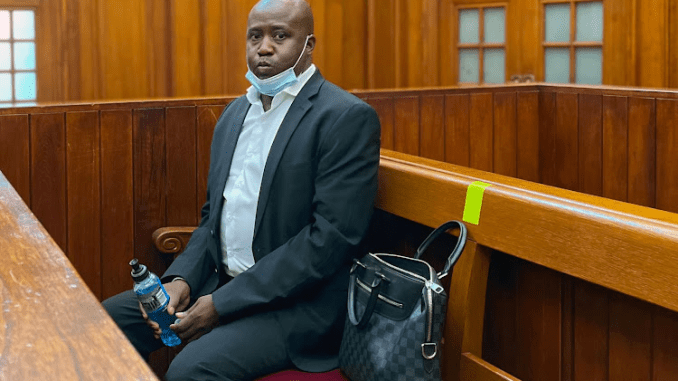
After his acquittal on corruption charges was reversed by the Supreme Court of Appeal, ANC MP Bongani Bongo declared he was prepared for a retrial.
“I didn’t do anything improper. “I am prepared to begin the trial anew if that is what they desire,” Bongo stated to Sowetan on Monday.
In February 2021, Bongo received an immunity from charges of corruption from Western Cape Judge President John Hlophe, who has since been impeached.
On Monday, however, the SCA mandated that Bongo return to court and begin his corruption trial anew.
John Smith, the acting judge, stated that Hlophe had committed “mistakes of law” and that, had those errors not occurred, Hlophe would have concluded that there was enough evidence to convict Bongo.
“I am also satisfied that there are reasonable prospects that the respondent would have been convicted of either the main or alternative charges mentioned in the indictment if the mistakes of law had not been made,” stated Smith.
Speaking to Sowetan Bongo, though, he stated: “I wasn’t passing judgment on the case. I’ll leave if they ask me to. I’m not having any issues. Since I abide by the law, I have to go [back to court] if the verdict finds something is incorrect. The judge at the time stated that I had nothing to answer and that I was ready to go and answer if the case was assigned to another judge, even though my story was not told.
“I requested over the phone that my attorneys set an earlier date so that we could be informed of the verdict in full. I’m willing to go through whatever process. People expressed concern and filed an appeal, so I’m glad to restart the case. We need to resolve this so that everyone can know that I did nothing wrong.”
Hlophe had declared Bongo not guilty of trying to buy off Ntuthuzelo Vanara, the head of the parliament’s Eskom inquiry.
At the conclusion of the state’s case, Bongo’s attorneys requested a release, and Hlophe granted it.
The application was submitted with the justification that there was insufficient evidence to convict him in court.
Allegations stated that on October 10, 2017, Bongo allegedly paid Vanara excessive pleasure in exchange for him pretending to be ill or helping the accused stall parliament’s investigation into Eskom’s operations.
But Smith asserted: “It is difficult, in my opinion, to find a clearer and more explicit description of the illegal provision of pleasure to a public official with the intention of pressuring him to carry out a prohibited act.
“That the trial court was oblivious to this unequivocal and overt evidence of the commission of the crime of corruption can only be ascribed to its fundamentally erroneous understanding of the elements of that crime.”
According to Smith, there is preliminary evidence that Bongo committed the crime of corruption based on the evidence presented by the state.
He claimed that Hlophe had the “erroneous view” that Bongo’s request for Vanara to end the investigation could only be considered a corrupt act in the event that Vanara had been paid a certain amount of money in exchange.
“That understanding was unaware of the very broad meaning given to “gratification” in terms of s. 1 of the Precca [Prevention and Combating of Corrupt Activities Act], aside from the fact that it contradicted accepted legal norms. I think the conclusion is blatantly incorrect,” Smith stated.
“Moreover, the trial court’s error was not confined to an analysis of the evidence to determine whether the elements of the crime of corruption had been established – in which event it would have been an error of fact – but extended to an assessment of the evidence based on an erroneous understanding of the legal elements of the crimes with which the respondent had been charged.”
Smith claimed that the court’s conclusion was a substantial misdirection on a legal matter.
Leave a Reply